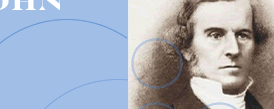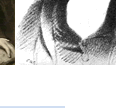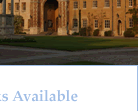
The
University of Teesside provided John with sabbatical
leave to further research John Grote but the project
gained impetus in 1988 following a paper he presented
on Grote at the Oxford Political Theory groups annual
meeting. Bernard Crick suggested John moved to Cambridge
and supported a successful approach to Wolfson College.
While the President, David Williams and Fellows provided
support John benefited from discussions, especially
with Professor William (Bill) Lubenow. Professor Michael
Redhead assisted John to become a Visiting Scholar in
History and Philosophy of Science where he provided
a paper which was engaged by Simon Schaffer amongst
others. The Visiting Scholarship at Wolfson was assisted
by the British
Academy Thank Offering Award that continued
form 1989-1992
During
the residential period John revived his attempt to uncover
the Grote MSS that were recorded and listed in the Introduction
to Part Two of the posthumous Exploratio published by
Cambridge University Press in 1900. John identified
that a surviving relative of John Grote, Teresa Mayor
had married the Apostle Lord Victor Rothschild. Chance
had it that the garden of their Cambridge house in Herschel
Road backed onto the garden of the house of Christopher
and Frederike Jeans in whose house in Adams Road John
was lodging. The Jeans family were embedded in Cambridge,
Christopher’s father, the eminent physicist Sir
James Jeans a Trinity Fellow had published numerous
popular texts on the history of science. Christopher’s
mother Susan Jeans was a musicologist, collector or
organs and Brains Trust radio contributor.
A letter of 1988 led to John being invited
by Lady Rothschild to visit Hereschel Road where boxes
of papers had been brought from the family estates at
Rushmore. The first chest opened contained the core
of what is now the Grote Mss within the Mayor
Papers
Here
there were letters, diaries, albums of photographs to
and from John Grote, his editor Joseph Mayor and members
of the Grote, Mayor and Bickersteth families, including
John’s famous brother George the eminent Historian
of Greece.
A room was provided in the Herschel Road house where
John worked for two years researching and archiving
the papers, supported by the household staff and dinners
most Friday with Lady Rothschild. In 1992 after the
death of Lord Rothschild, John was asked to advise Lady
Rothschild on the an appropriate archival location for
the papers. After extensive visits John approached the
Librarian at Trinity College, Professor David McKitterick
and a subsequent agreement with owners was made to move
the papers to the Wren Library in 1993. Trinity College
on its part provided John with the title of Visiting
Archivist, provided library accommodation and dining
rights for two more years. The Senior Archivist at Trinity,
Jon Smith worked with John and produced the catalogue
now known as the Mayor Papers.
John
began to work in related topics with fellow scholars
who used the Wren Library. Jon Smith and Christopher
Stray organised two conferences on Learning and Teaching
in Mid Nineteenth Century and a book came out of this
(Smith and Stray 2001; Gibbins 2001). CRASSH the new
Centre for Research in Arts Social Sciences and Humanities
were by now organizing state of the art seminars on
the history of curriculum and the academy which let
to John contributing to the Centenary volume for the
British Academy in 2004 The Organisation of Knowledge
(Daunton 2004; Gibbins 2004).
John’s
move to Newcastle University to support their implementation
of the Roberts agenda for researcher development slowed
his work on Grote but with the help of colleagues, and
the generosity of Keith Sutherland of Imprint Academic,
he moved to the final stage of cutting and editing his
four decades of work. The original mss of 240,000 words
was reduced to 160,000 and it is this text that was
published in 2007.
John
Grote, Cambridge University and the Development of Victorian
Thought, Imprint
Academic, 2007
|










